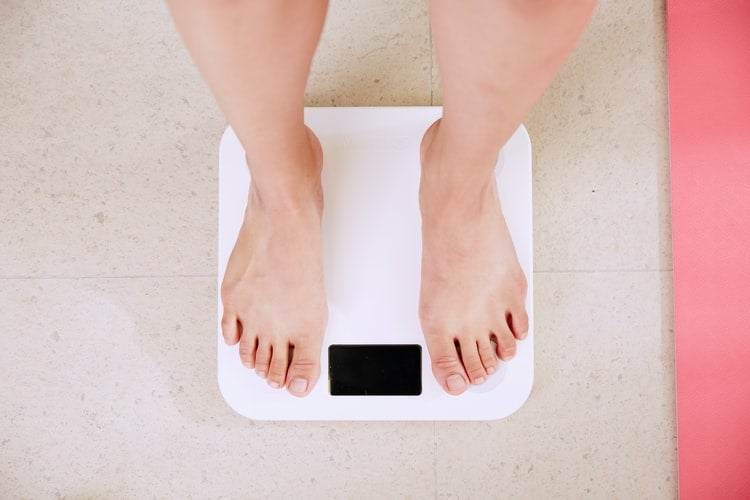Let’s get one thing straight: the “P” in PCOS doesn’t stand for “perfect.” If anything, it stands for “perplexing,” “persistent,” and at times, downright “painful.” Polycystic Ovary Syndrome is far more than a simple medical acronym—it’s a daily battle that millions of women face, packed with hormonal rollercoasters, body image struggles, and fertility uncertainties that can take a heavy emotional toll. Living with PCOS can feel like navigating an unpredictable storm, one where you’re constantly told to just “stay positive” or “lose some weight,” as if these quick fixes could magically erase the reality of the condition.
Despite what society might suggest—whether it’s the unspoken pressure to have clear skin, a flat stomach, or a fertile womb—PCOS is anything but picture-perfect. And yet, many women with PCOS are bombarded by expectations that they should be able to control or even “fix” their symptoms with little effort. Add in the seemingly endless cycle of unsolicited advice from friends, family, and internet wellness “gurus,” and it’s easy to see how living with PCOS can feel like an exhausting uphill climb.
But here’s the truth: PCOS doesn’t have a one-size-fits-all solution, and it certainly doesn’t play by society’s rules of perfection. Instead of chasing an ideal that doesn’t exist, it’s time to flip the narrative and shine a light on the real, messy, and complicated experiences that come with this condition—experiences that deserve understanding, compassion, and a whole lot less judgment.
What is PCOS?
PCOS is a hormonal disorder characterized by a range of symptoms, including irregular periods, excess androgen levels (male hormones), and polycystic ovaries, where the ovaries become enlarged and contain numerous small cysts. The exact cause of PCOS is still not fully understood, but it is believed to involve a combination of genetic and environmental factors.
Women with PCOS may experience a variety of symptoms, including:
- Irregular or missed periods
- Excess hair growth on the face and body (hirsutism)
- Acne and oily skin
- Thinning hair or hair loss from the scalp
- Weight gain or difficulty losing weight
- Fertility issues
- Mood swings and depression
PCOS can also increase the risk of developing other health conditions, such as type 2 diabetes, heart disease, and endometrial cancer. Despite these significant physical health concerns, the emotional toll of living with PCOS is often overlooked or underestimated.
The Emotional Struggles of Living with PCOS
One of the most challenging aspects of living with PCOS is the emotional burden it carries. Women with PCOS often struggle with body image issues, low self-esteem, and feelings of inadequacy due to the physical changes associated with the condition. Weight gain, acne, and excess hair growth can all contribute to a negative self-image, leading to anxiety and depression.
In a world that often seems obsessed with flawless skin and thin bodies, women with PCOS may feel like they don’t fit into society’s narrow standards of beauty. This pressure can make someone feel judged or isolated, feeding into a toxic cycle of self-blame. Instead of feeling empowered, many feel trapped by these unrealistic expectations.
But the emotional burden isn’t just skin-deep. For many women, the fear of infertility adds a crushing weight to an already heavy load. Not knowing if they will ever be able to have children can lead to feelings of loss and hopelessness. This emotional toll is not just felt internally but can affect relationships, leading to frustration, grief, and strain in even the strongest partnerships.
Hormonal Imbalances and Their Impact
The hormonal imbalances associated with PCOS are at the core of many of the condition’s symptoms. Elevated levels of androgens, such as testosterone, can lead to the development of traditionally male characteristics, such as excess hair growth on the face and body, as well as acne. These symptoms can be particularly distressing for women, as they challenge societal norms of femininity and beauty.
Beyond appearance, these hormonal imbalances create a whirlwind of mood swings, irritability, and, sometimes, depression. It’s hard to manage the unpredictability when your emotions can swing from highs to lows, often leaving you feeling out of control. The frustration of trying to regulate both physical and emotional symptoms can feel like trying to catch smoke—impossible and exhausting.
The emotional turmoil of living with hormonal imbalances can be tough to articulate, especially when it’s not something others can see. Women with PCOS often feel alone in this battle, struggling not only with their physical symptoms but also with the emotional chaos that comes with it.
Weight Gain and Body Image
Weight gain is a common struggle for women with PCOS, and it is often one of the most distressing aspects of the condition. Many women with PCOS find it difficult to lose weight, even with a healthy diet and regular exercise. This is due to the body’s resistance to insulin, a hormone that regulates blood sugar levels. Insulin resistance is a hallmark of PCOS and can lead to weight gain, particularly around the abdomen.
This struggle is particularly challenging when society places such a high value on thinness as a measure of beauty and success. For women with PCOS, this pressure can lead to feelings of frustration and defeat, as if they’re constantly falling short of an unattainable standard. It’s a painful cycle, and each unsuccessful attempt at weight loss can chip away at self-esteem.
The constant focus on body image can also drive women toward extreme dieting or over-exercising in hopes of achieving an unrealistic ideal. Unfortunately, these efforts often do more harm than good, leaving women physically and emotionally drained. Instead of focusing on health and well-being, the pursuit of the “perfect” body can become an unhealthy obsession that feeds into the emotional struggles of living with PCOS.
Fertility Issues and the Emotional Toll
For many women, one of the most challenging aspects of PCOS is its impact on fertility. PCOS is one of the leading causes of infertility in women, due to irregular ovulation or anovulation (lack of ovulation). The uncertainty of whether they will be able to conceive can lead to significant emotional distress, particularly for those who have always dreamed of becoming mothers.
The struggle with infertility can be intensely personal and isolating, often causing women to retreat rather than open up about their challenges. Sharing such intimate struggles can invite unwanted judgment or pity, which only adds to the emotional strain. The constant cycle of hope, anticipation, and disappointment as women try to conceive can feel like an emotional treadmill with no end in sight.
In relationships, fertility struggles can create tension, with partners experiencing their own forms of frustration and guilt. The pressure of infertility often leads to feelings of inadequacy and self-blame, making the journey even more emotionally taxing. Couples may find themselves navigating uncharted territory, with their dreams of parenthood feeling ever more distant.
Critiquing Unrealistic Expectations and Misconceptions
Despite the significant emotional and physical struggles associated with PCOS, there are still many misconceptions and unrealistic expectations surrounding the condition. One common misconception is that PCOS is solely a weight-related issue and that losing weight will “cure” the condition. While weight loss can help manage some symptoms of PCOS, it is not a cure, and the focus on weight can overshadow the other aspects of the condition.
The oversimplification of PCOS as just a “weight problem” does a disservice to the many women battling this condition. Women who struggle to lose weight often find themselves grappling with guilt and shame when their efforts don’t produce the “expected” results. It’s as if they’re being told that not only should they control their weight, but they should also be able to manage all their symptoms through lifestyle changes alone.
The reality is that PCOS is a medical condition that requires more than just diet and exercise to manage effectively. Many women need a combination of medical treatments and emotional support to cope with the wide range of symptoms. Misconceptions about PCOS only add to the emotional burden, making it harder for women to feel understood or supported.
The Need for Compassion and Support
If ever there was a time to embrace compassion, it’s in the face of PCOS. Living with this condition requires more than just physical management—it demands emotional support, understanding, and a comprehensive approach. Women with PCOS are often given generic advice like “just lose weight,” which overlooks the complexity of their condition and the emotional toll it takes.
Healthcare providers have a responsibility to treat women with PCOS holistically, offering both medical and psychological support. Often, the emotional aspects of PCOS are sidelined, when in reality, they are just as significant as the physical symptoms. Women with PCOS need a support system that validates their experiences and offers practical solutions that go beyond diet plans.
Friends and family play a vital role too. Simple acts of empathy—listening without judgment, avoiding unsolicited advice, and offering patience—can be game-changers. Rather than focusing on superficial fixes, what women with PCOS truly need is understanding and compassion to help them navigate their complex condition without feeling alone or misunderstood.
Breaking the Silence and Raising Awareness
One of the biggest battles women with PCOS face is breaking the silence surrounding the condition. PCOS often lurks in the shadows, under-discussed in public conversations about women’s health. This silence breeds stigma, leaving many women feelings like they’re alone in their struggles with everything from fertility issues to excess hair growth.
Thankfully, social media and online communities have become powerful tools for women with PCOS to share their stories. By openly discussing their experiences, women are not only helping to dismantle myths but also raising much-needed awareness. These platforms create a sense of solidarity, showing women that they don’t have to battle PCOS alone.
Raising awareness goes beyond just personal stories—it’s about advocacy and policy change. More research funding, improved healthcare services, and widespread education are necessary to ensure that PCOS is understood and taken seriously. By speaking up and sharing their journeys, women with PCOS can help shape a more compassionate, informed future for everyone facing the condition.
Advocating for Change
In addition to raising awareness, there is a need for advocacy and policy change to improve the care and support available for women with PCOS. This includes increased funding for research into the causes and treatment of PCOS, as well as better access to healthcare services.
It is also essential to address the stigma surrounding PCOS and promote a more inclusive and compassionate approach to women’s health. This means challenging societal norms and expectations around beauty, weight, and fertility, and recognizing that there is no “perfect” way to live with PCOS.
Advocacy efforts can also focus on improving education about PCOS, both for healthcare providers and the general public. By increasing understanding of the condition, we can help to ensure that women with PCOS receive the care and support they need.
For more such brutally honest takes on college life, check out Her Campus at MUJ.
And if you’d like to explore more of my world, visit my corner at HCMUJ — Aditi Thakur








